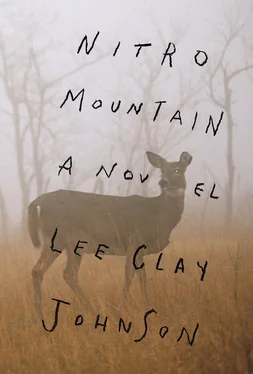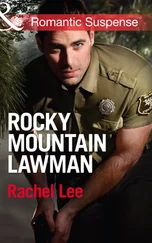“Just make it sad.”
“I’m sure he’s got that covered.” Larry’s staring at something only he can see, working the muscle in his jaw, not even in the room with them anymore.
Jones takes his guitar and weaves toward the stage. Leon. Crazy old Leon. “Larry, unplug the jukebox,” Jones says. “She’s lonesome. And Jones Young is in the building.”
—
Awake and asleep, he says, “Why were you ever up there with any of those dudes?”
“Same reason I’m with you.”
—
Daylight splinters into the room, across Jennifer’s sleeping face. The motel sheets are clean and starched. Jones sits up and the rush of blood pounds his head. He keeps an eye closed, looks over the side of the bed for his guitar. It’s right there. No case, but there. That’s good.
And he’s still alive. That’s good, too.
He gets up and steps into his jeans. His heart’s beating like it’s trying to get loose. He looks around for his hat. Must’ve left it at the Hickory. He’ll stop by for it before going to Natalie’s to grab the case. He sits on the chair in the corner, slips a menthol cigarette from the pack that’s sticking out of Jennifer’s pleather purse and blows smoke at the sealed window, catching a line of morning light.
How she looks right now makes Jones want to stay. But that isn’t going to happen. He gathers his stale socks and pulls them over his feet. Her body beneath the white sheet makes a snowy mountain range. She stirs, shifting the topography. Last night he woke up in her arms. It felt like dreaming. Her fingers on his skin. He takes the napkin from his back pocket and writes another line to what he hopes is a song. There’s the bottle next to the coffee pot, uncapped with a few inches left. He gets up, the cigarette in his mouth, takes the bottle in his right hand and the guitar in his left and manages the doorknob with two fingers.
Streams of dirty water sparkle across the blacktop. The bright day makes him squint. It’d look like he was grinning, if someone were watching right now.
Jones can still smell her in his mustache. The Econoline’s taking up two spaces at the far end of the lot. He doesn’t recall much about driving here last night, but the way it’s sitting there crooked tells him enough. He does remember she was on him the second he opened the door, pulling at him, begging, and he was worried that after all the whiskey he’d be a cooked noodle and she wouldn’t have any fun. But her mouth sobered him up pretty good. Her lips were bleeding a little and that made the kissing slick. Forgetting her will take some time, he knows that. And that whole Leon thing. What the hell? He can understand why Leon was willing to kill for her. Or at least talk about it. She has that kind of power. Jones doesn’t blame him for a minute.

Arnett remembers his mother planting tomatoes outside his open bedroom window, and Jack, his uncle-dad, coming back from the shed carrying the moldy leg of a deer, its hoof dragging behind him and making a broken line in the dust. The hounds had brought it out of the woods. His mother was wearing a straw sunhat. Arnett could see him coming up behind her. Still can.
Jack was, by blood, Arnett’s uncle. The last time they talked was maybe ten years ago, right before he ran off after shooting that cop, and Arnett wouldn’t be surprised if Jack was living like a fool bum somewhere, thinking he was still in trouble. Jack the Uncle. Stupid-ass uncle-dad.
Arnett’s real father died on a blast-mining job before they even had the explosives in place and is now just a soiled spot trapped in the tunnels of his son’s mind. He was cutting away coalbed when the mountain flexed. And that was it. Gone. Buried beneath the hills of Watts, Kentucky, where they were all living at the time.
Arnett never did any mining, no fucking thank you, he ain’t about all that. If you asked him who he’s closer in kin with, he’d have to say Jack.
After his father’s death, Jack married his mother and brought them to the outskirts of Bordon, where he bought some land with the money paid to compensate the loss of his brother, his new wife’s old husband, on top of the hill he’d climbed when he first arrived, which was in fact a mountain — what’s a few extra feet? — and nobody much stepped foot on it. He’d bought it for cheap from the coal company; they were damn happy to wash their hands of all potential lawsuits and calm the family down. Motivated by delusions of prosperity, he began building a house up there, a kind of fortressed inn he called the Lookout.
And that’s the issue with Wesley. He’s always going on about how I built this house for my love, I built it with my bare dick . No he didn’t. Arnett’s uncle-dad did. And then, when Jack split, Arnett tried selling some of his corn liquor and got busted. Go figure. He got arrested for public intoxication every single time he went into town. So he hired Wesley for all the court dates and ended up owing him twelve grand. He didn’t have five bucks on him, or anywhere else, so he gave that asshole the inn.
Wesley paid the back taxes and started fixing the place up for his wife, who turned out to be a bitch, and once they separated he began relying on substances provided him by clients who couldn’t otherwise pay his fees. He invited Arnett back to the Lookout in hopes of turning it into a play-palace — a buffet of whores and hooch, the bar loaded with every yellow beer available and barrels of bourbon left over from local distilleries that wanted in on the fun. Arnett dreamed of parties lasting for days, women tied up and drooling. He was supposed to make this happen. But look at him now. Writhing from what that little motherfucker drank him with.
He can still see Jack grabbing his mom that day and saying, “Do you not hear me?” He saw her sunhat fall off and ran outside to help her, but Jack was beating her with the deer leg. He remembers seeing that torn-open paper packet of seeds lying in the dirt, and Jack standing over her. It all makes him step outside his body now and see himself standing like that over Leon.
Maybe he can’t even help it.
The grass was still wet with dew when he snuck around the inn. He’d been self-medicating in the barn with splo for at least twenty-four hours — he was so fucked up it was hard to tell. But he did know it was still dark out when he crept onto the porch with a flashlight to see who the hell was in his house.
He prayed it was who he thought it was. Self-defense, motherfucker. And bingo. The kid was too scared to even try to shoot. Arnett lifted the rifle from his arms and invited him outside. “I just wanna show you something,” he said.
Now there’s stains splattered all over his shirt from the business he just finished. It’s raining off and on. The pain in his stomach makes him lash his arms across his middle until he folds, almost like he’s laughing, and comes back up to say, “Might the problem with this predicament be irreversible? I think not. Then stand straight up, you cracker fuck.”
Water forms at the lower rims of his eyelids. Weak tear ducts, his mother used to say, so he always carries a handkerchief and never lets anybody see him wiping away the unintentional weeping. It’s the most embarrassing thing he could’ve imagined, tears coming from nowhere. They never meant sadness; he doesn’t believe he’s ever felt much of that. Like the time Jennifer, gone most of the day, came home from the mall all done up and asked if he’d missed her, and he said, I don’t know what that means. She was the only one to have ever seen the eye fluids, and she even gave him a reason for it. When you get scared, she said. When you get cold, when you get angry, when you get drunk. That’s when you cry. It’s not crying, he told her, and then knocked her down.
Читать дальше


![Lee Jungmin - Хвала Орку 1-128 [некоммерческий перевод с корейского]](/books/33159/lee-jungmin-hvala-orku-1-thumb.webp)










